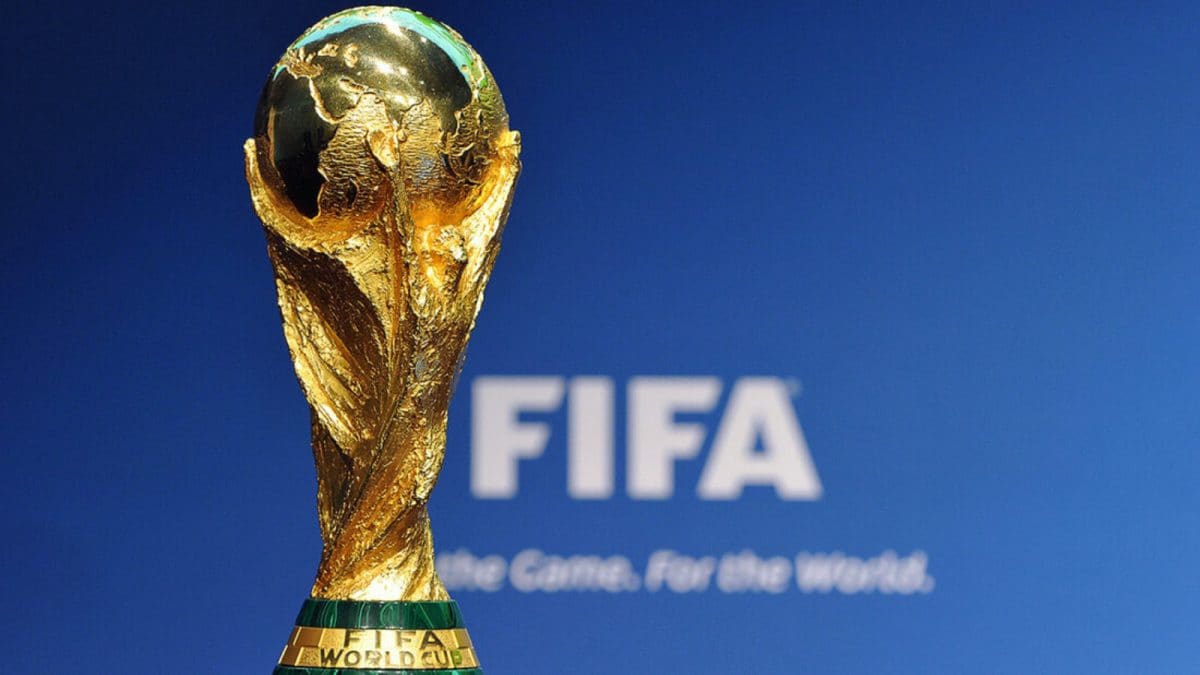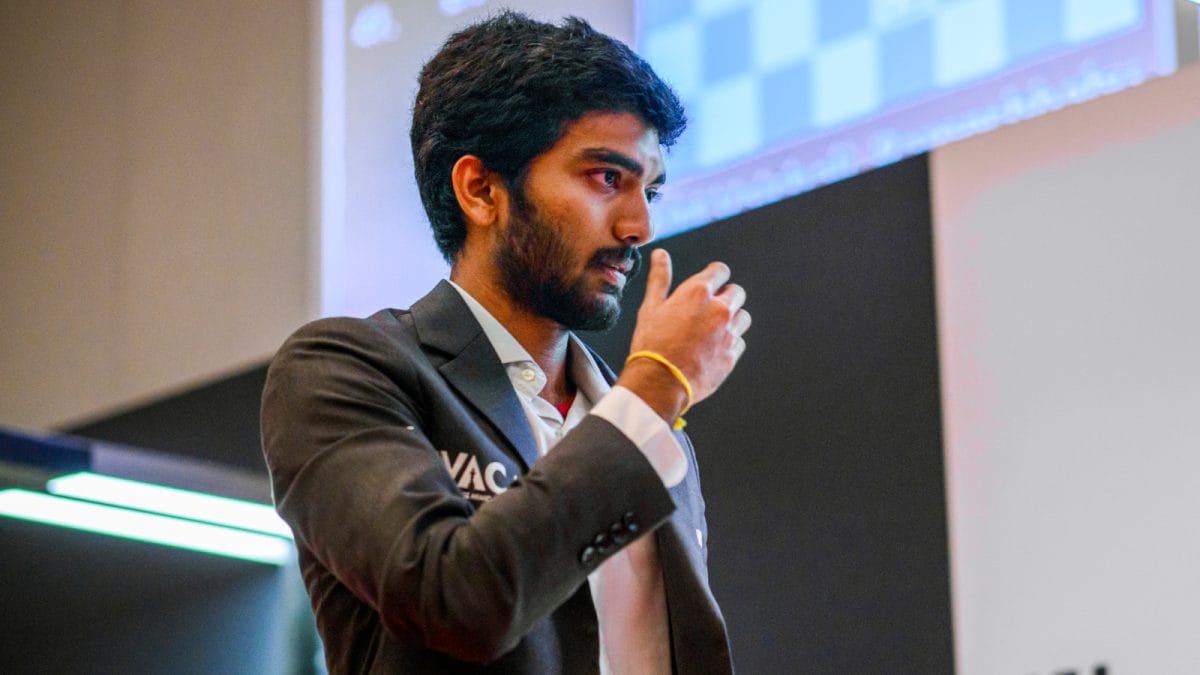ARTICLE AD BOX
 A clear pattern has emerged for Arjun that a match against a lower-rated player often becomes a heavily skewed affair in his favour. (Photo Credit: Michal Waluzsa/FIDE)
A clear pattern has emerged for Arjun that a match against a lower-rated player often becomes a heavily skewed affair in his favour. (Photo Credit: Michal Waluzsa/FIDE)
It was during the 2024 Chess Olympiad in Budapest that the Indian men’s team attracted a lot of eyeballs, not particularly for the immense firepower that the team possessed, but also for the board order in which the team would play. The top three names for India were R. Praggnanandhaa, D. Gukesh and Arjun Erigaisi, with each having the calibre to take the top board. Arjun was the highest-ranked Indian at that time and, naturally, an ideal fit to take the top board against the world’s best.
Cut to the end of the event, India had won their historic maiden gold medal, and Arjun also won an individual gold medal for the best performance on his board. It wasn’t the top board, nor was it board No. 2. Arjun played on the third board behind Gukesh and Praggnanandhaa and ran through the opposition like a blitzkrieg. Not that Arjun playing on Board No. 3 was a demotion, but the highest-ranked Indian not taking the top board was somewhat not mainstream. The rationale behind this move was to cash in on Arjun’s superiority over players rated lower than him, India’s coach at that time, N. Srinath had explained.
On Friday, during the third round of the FIDE Chess World Cup 2025 in Goa, Arjun vindicated Srinath’s strategy once again, not with words, but with his play. Facing Uzbek Grandmaster Shamsiddin Vokhidov (rated 2640), Arjun came out with an exceptional opening preparation that virtually guaranteed a favourable result right from the start. His preparation was such that the first 16 moves of his added two minutes to his clock rather than him using the time assigned to him. He continued to blitz out moves, and by the time he finally paused, the game was effectively over for his opponent.
Vokhidov made his first error on the 20th move, just as Arjun was leaving his prepared lines, mistiming a pawn push to f6. A move later, he captured Arjun’s pawn on e5 with his knight, a decision that sealed the game’s fate. Just eight moves and an hour later, Vokhidov resigned in a completely lost position, while Arjun still had over half an hour on his clock. Not only did Arjun make short work of Vokhidov’s defence, but he also positioned himself for a deep run in this tricky event. He now needs only a draw with the black pieces to qualify for the next round.
What makes Arjun truly special is his ability to bulldoze lower-rated opponents. Many strong Grandmasters rated between 2700 and 2750 in this event have struggled against such players, which is not that surprising in a single-elimination format. Yet, a clear pattern has emerged for Arjun that a match against a lower-rated player often becomes a heavily skewed affair in his favour.
Harikrishna wins too
Another player who shone today was the clinical 39-year-old Pentala Harikrishna, who took only 25 moves to force Belgian Grandmaster Daniel Dardha to resign. Playing with the white pieces in a Sicilian Defence game, GM Harikrishna gained an early advantage and steadily tightened the screws to secure a decisive victory. He ended the match with a rook sacrifice, a symbolic move that indicates the excellent form he is in.
Harikrishna is one of only a handful of players to have competed in both the last World Cup held in India in 2002 and the current one. The former India No. 1, who is striving for his maiden Candidates spot, said he plays the sport purely for the love of it. “Right now, I just want to enjoy playing chess. It’s quite similar to why I started playing the sport, and I still feel the same. So, that’s one of the main driving forces for why I play chess. The moment I cannot really enjoy it, I am not going to push for it,” he told The Indian Express from Goa.
Story continues below this ad
“As far as my ambitions, I change them according to the circumstances and the tournaments I’m playing. Right now, I am taking the World Cup one match at a time because it’s a very difficult event. The Candidates is still a far-off and huge commitment, so I am just taking one tournament at a time,” he said.
Elsewhere, Pranav V ground out his opponent, Titas Stremavicius of Lithuania, to grab an important win. The seven remaining Indians ended up sharing the spoils.
Indian results:
D. Gukesh drew with Frederik Svane (GER) 0.5-0.5; Arjun Erigaisi beat Shamsiddin Vokhidov (UZB) 1.0-0.0; R. Praggnanandhaa drew with Robert Hovhannisyan (ARM) 0.5-0.5; Pranav V beat Titas Stremavicius (LTU) 1.0-0.0; M. Pranesh drew with Vincent Keymer (GER) 0.5-0.5; Pentala Harikrishna beat Daniel Dardha (BEL) 1.0-0.0; Vidit Santosh Gujrathi drew with Sam Shankland (USA) 0.5-0.5; S L Narayanan drew with Yangyi Yu (CHN) 0.5-0.5; Diptayan Ghosh drew with Gabriel Sargissian (ARM) 0.5-0.5; Venkataraman Karthik drew with Bogdan-Daniel Deac (ROU) 0.5-0.5.









 English (US) ·
English (US) ·